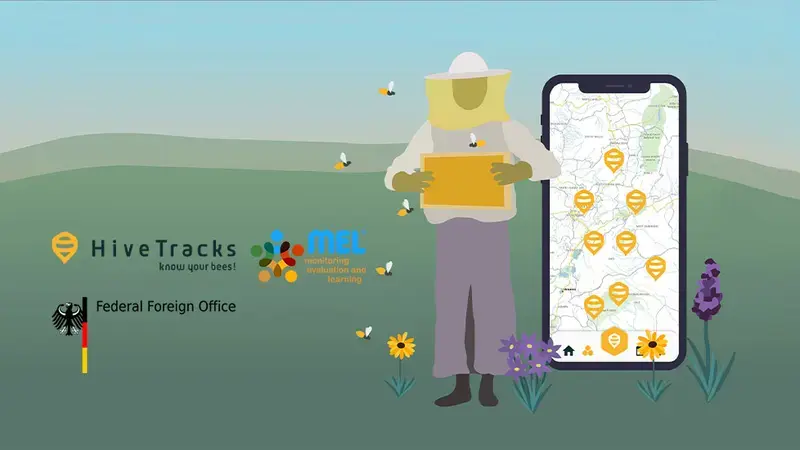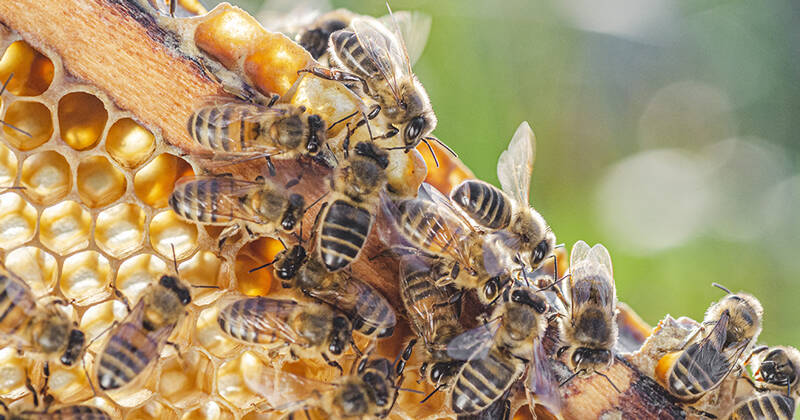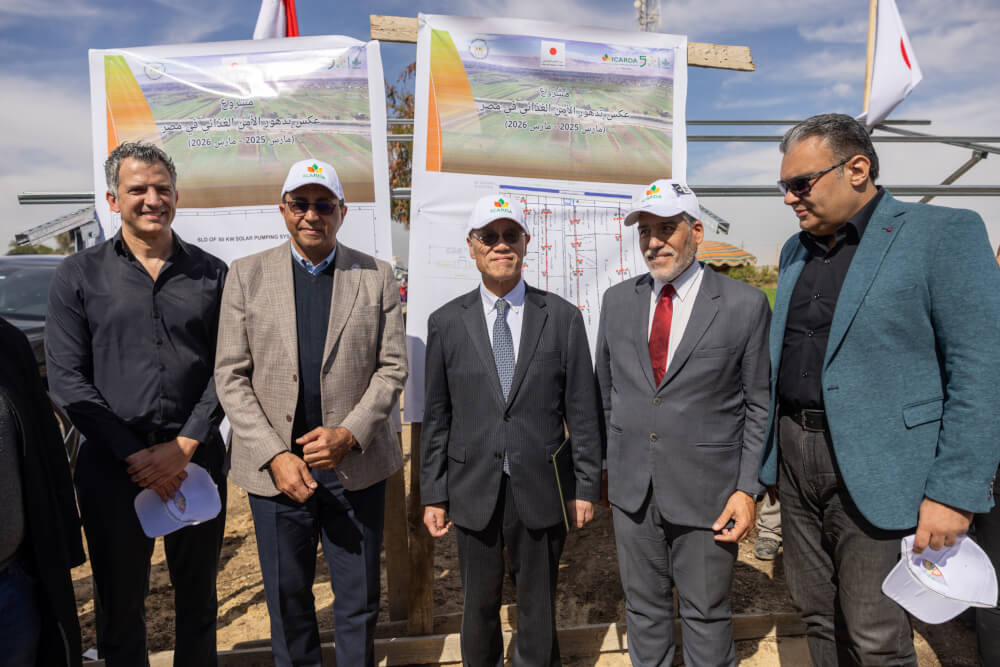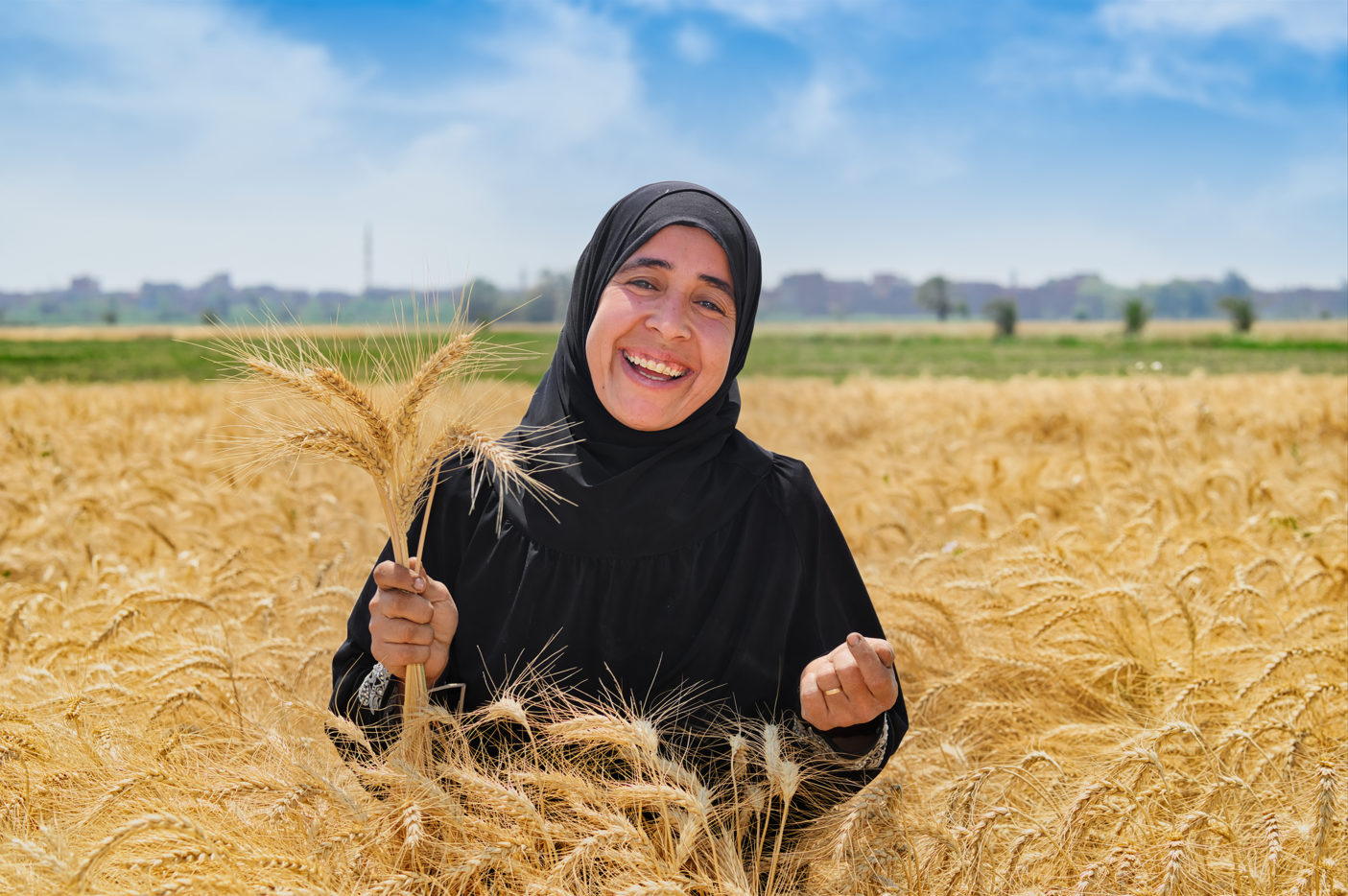AI-Driven Climate-Smart Beekeeping for Ethiopian and Uzbek Women

Beekeeping has long been a traditional pursuit in Uzbekistan and Ethiopia, where smallholders produce honey for sale and use in food and traditional drinks. As well as providing an ideal, low-capital, accessible, and business opportunity in urban and rural areas, bees also play a vital role in protecting farmstead biodiversity by pollinating crops and plants.
Beyond its vital role in protecting biodiversity, beekeeping provides an ideal, low-capital, accessible, and empowering micro-entrepreneurship opportunity in urban and rural areas – and an important tool to support the resilience of these communities during the ongoing COVID-19 pandemic.
Yet honey production levels that have always been low due to a lack of available infrastructure are now further challenged by extreme, unpredictable weather events driven by intensifying climate change that increasingly impacts a once resilient honey trade. Meanwhile, the health of bees and pollinators is declining throughout the world due to inappropriate agricultural practices, and this alone poses a serious threat to global biodiversity and food security.
Pooled knowledge for better decisions
The urgent need to support beekeepers, especially Ethiopian and Uzbek women who have unequal access to resources, technology, education, job opportunities, and land rights, has been taken up by the German Federal Foreign Office. They support a new project launched by ICARDA's Monitoring, Evaluation, and Learning (MEL) Team and HiveTracks Inc., that aims to support biodiversity and enable improved hive management and better incomes among women.
MEL and HiveTracks are leveraging feedback from women beekeepers to customize and localize an artificial intelligence (AI) driven beekeeping companion app that aims to improve bee health and productivity while protecting biodiversity and empowering women. Up-to-date information and advice are shared broadly to current app users who automatically contribute new data to the knowledge pool as they use the app to complete hive inspections.
The user-friendly application combines information about incoming weather sources and best beekeeping practices to provide women beekeepers with access to a wide range of support from other users and bee services. Providing relevant, timely information helps ensure beekeepers are better informed and incur fewer financial and bee losses in their business due to being better informed about incoming weather systems, bee health, and better beekeeping practices.
Key to the project is the people-centered approach of ICARDA and HiveTracks, where women beekeepers participate right from the start. Along with continuous real-world testing and data curation, their participation helps the app capitalize on vital local knowledge while ensuring tailored support for sustainable beekeeping practices, adapted to local conditions, environment, and level of expertise.
Launched in Uzbekistan and Ethiopia, the project aims to empower 30 women beekeepers who will become agents of change by piloting the beekeeping companion app for improved hive management decisions. A network of field and research assistants in collaboration with local beekeeping associations will further facilitate this process.

A beekeeper's best friend
The app automatically notifies other beekeepers when a beekeeper enters critical data, such as pest activities, encouraging the local network of beekeepers to collaborate, help each other, and share their information and experience. The project team engages the beekeepers through the collaborative design process, notifications, and in-person check-ins from field assistants throughout the beekeeping season.
Aimed at smallholders who may not have extensive technology experience, the user-friendly app requires minimal interaction, and contributing beekeepers can record any hive event with simple swipe gestures. The app then pools, categorizes, and processes local knowledge from beekeepers across the project areas to deliver advice back to beekeepers, tailored to their individual hives, flora, and climate.
The pilot Machine Learning (ML) algorithm in the app, an AI component, will become trained to send alerts and reminders to beekeepers to check on the status of their hives and encourage them to perform inspections based on time, environment, or community-specific triggers.
It's a woman's business
This innovative AI-driven solution enables micro-entrepreneurship and directly improves resource-constrained women and improves their livelihoods through:
- Improving digital literacy, beekeeping training, and performance of hive inspections with the assistance of a smartphone application
- Increasing honey production and diversification of livelihoods
- Encouraging the involvement and leadership of women, who are often under-represented in decision-making, planning, and implementation of climate adaptation strategies
Old traditions, new ways
Women smallholder beekeepers are a vulnerable group who are not only affected by challenges such as climate change but also face discrimination in land ownership and management. Innovative solutions like the localized beekeeping companion app help to deliver sustainable livelihoods for themselves and their families by capitalizing on the resources they have at their disposal. The project aims to build their resilience by supporting their livelihoods while also improving local biodiversity, crop yields, and the health of bee populations.
The app is built on the foundations of the beekeepers' input and knowledge at the development stage and their constant interaction. Through this approach, this gender-responsive project allows the smallholders themselves to claim ownership and buy-in to an innovative and sustainable solution based on a fusion of cutting-edge AI approaches and traditional local knowledge. A model that ICARDA's MEL Team replicates across its work in other regions.
-------------
The German Federal Foreign Office (GFFO) has a history of supporting innovation in research for development projects, vital in today's climate change context. The GFFO considers climate and gender equality issues as a vital component of its foreign policy. In cooperation with other German governmental agencies and ministries, the GFFO climate fund has financed approximately 100 projects per year worldwide and supported several global dialogues on this critical issue.
-----------
Further Reading:
- Project website for more information https://mel.cgiar.org/projects/ai-driven-climate-smart-beekeeping-for-women-aid-csb
- Project brief: https://hdl.handle.net/20.500.11766/12921



